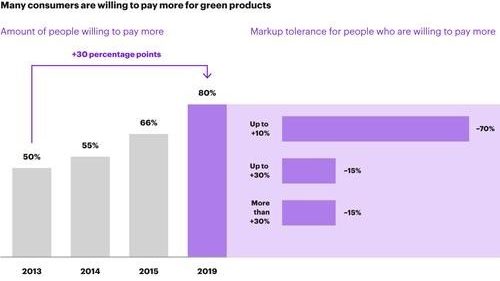
Consumers Matter in Consumer Matters

It’s no secret that with the evolving energy landscape, there will be more business models in our industry oriented towards the individual consumer. The advent of new price comparison websites such as Power2Switch or PowertoChoose have made comparing retail energy plans much easier, showing in simplified terms what the average cost per kWh is for certain thresholds, highlighting whether the rate structures are fixed or variable, % renewable energy, etc. Digitalization has made the consumer more powerful in energy choice, leading to an increased focus in studying and responding to the different components of consumer preference.
This has changed the retail energy product offerings over the years, with more robust online / bill pay platforms, higher % of renewable energy, clearer billing structures, and partnerships with sophisticated energy management tools like Nest playing key roles in swaying the more capricious consumer. We increasingly see more energy companies having to take learnings from more traditionally consumer-facing businesses like retail or tech in order to stay competitive. Standard practices in retail and tech like A/B testing, consumer data gathering, and consumer-oriented marketing have been and will increasingly be transplanted into the energy sector.
But this trend is not isolated to residential electricity consumption. Current energy-centric products like EVs and some types of batteries will also find momentum in direct-to-consumer models (such as Tesla). Traditionally oil-weighted products like plastics and polyester fibers are selling into markets where consumers are increasingly having a preference for low carbon / circular economy types of materials (think recycled PET yoga pants or bottles). A Kearney study found that the percentage of consumers that would be willing to pay more for “green” products has jumped 30 points from 2013-2019.

Fuel distribution and consumption has also been impacted by this trend. There is a strong case to be made for why oil and gas and other fuel production companies should expand their retail energy presence – and indeed, we’ve seen some oil and gas companies already pursuing this strategy. Shell, in 2018, committed to investing $7-9 billion in developing a new downstream strategy, expanding its convenience store locations and revamping the product offerings and services at each location. BP formed a joint venture with ArcLight to buy convenience store chain Thorntons. Some companies have taken an even more creative approach, partnering with consumer-facing businesses like food delivery services. The benefits are multi-fold: production companies can find better outlets for their fuel products in a market of diminishing demand growth, increase margins by offering high-value products and services outside of the commodity, and drive better brand perception by direct-to-consumer marketing.
Retail energy also creates better opportunities for energy transition. As renewable fuels gain market share, product portfolios will become more differentiated and complex, which means being able to build a consumer understanding of the different fuel blends will become more important. That understanding is difficult to ramp up without a direct line of communication to consumers. Having a retail presence also creates optionality for energy companies to put in place EV charging or hydrogen depots once the demand is in place.
The point is that energy in a lot of ways has become a consumer matter. All types of energy usage - electricity production and consumption, energy and carbon usage in product manufacturing, fuel distribution and usage, etc. – now involve more consumer input. And the flexibility that a world of energy choice affords means consumer input will increase in importance going forward. Transitioning to a B2C sales model with greater understanding of consumer purchasing decisions will build more nimble and defensive businesses.
Consumers are paying attention to energy and it won’t be long before energy will have to pay attention to consumers as well. Consumers matter in consumer matters.

